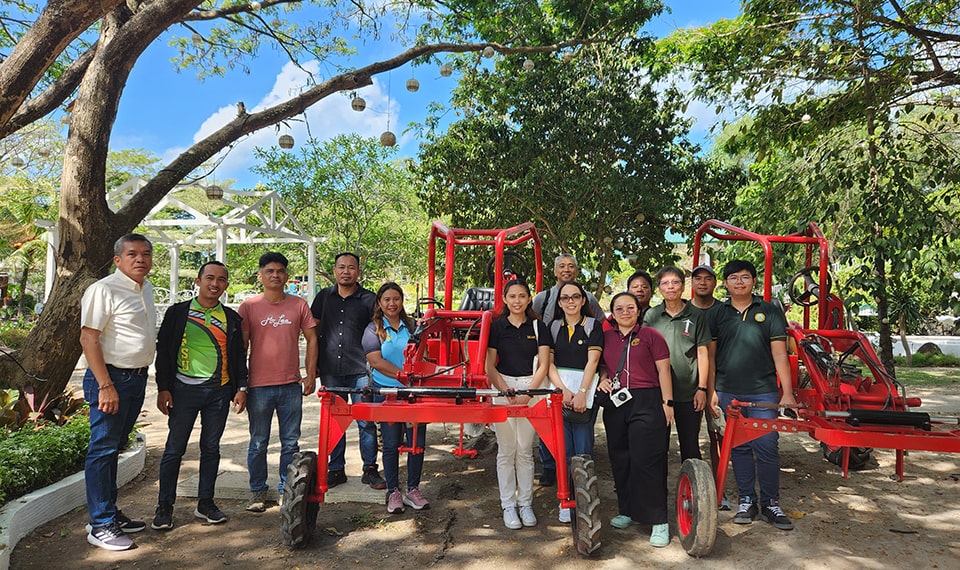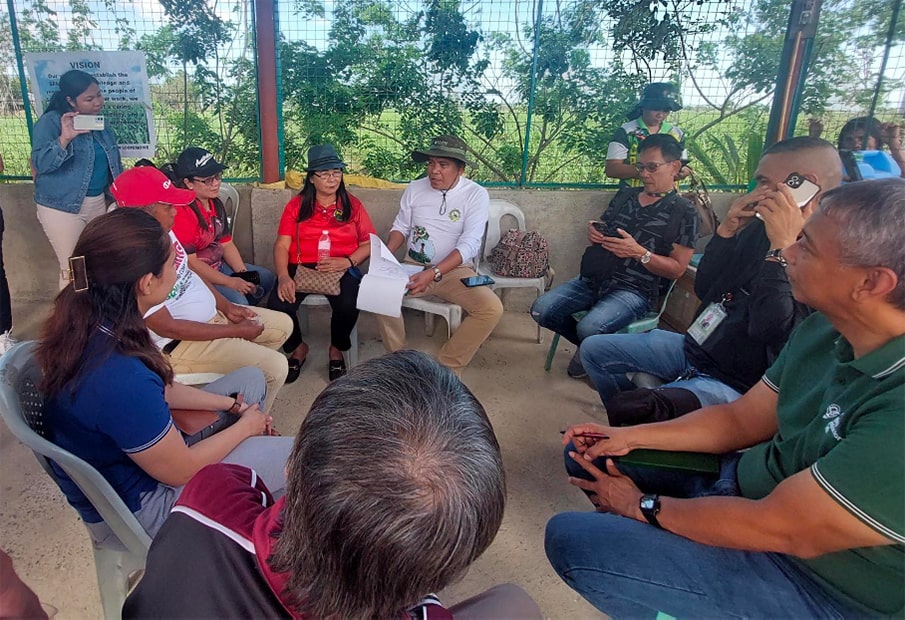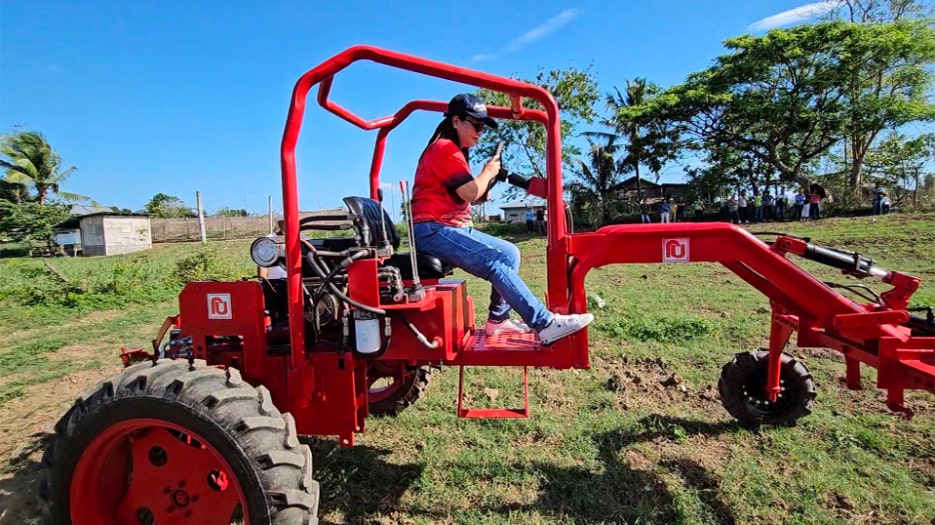Negros Occidental, Philippines —The Southeast Asian Regional Center for Graduate Study and Research in Agriculture (SEARCA) is set to unveil its groundbreaking approach to agri-mechanization through open-systems tractors, reaching far and wide, particularly in the Visayas region. The recent collaboration with RU Foundry in Bacolod has resulted in the completion of the enhanced Oggun Tractor, an open-systems design tractor that is being locally manufactured in the Philippines.

SEARCA's General Service Unit, together with the Emerging Innovation for Growth Department, inspected the newly designed tractor, which is tailored to meet the unique needs of farming communities in the region. The upgraded Oggun Tractor now boasts a power-take-off (PTO) device for direct coupling of implements, an improved wheel design for enhanced traction, and a sturdier bracket and frame engineered to thrive in the country's diverse terrain and soil conditions.
Beyond design enhancements, RU Foundry, headed by Mr. Ramon Uy, has introduced a locally manufactured hydraulic cylinder for the tractor and upgraded the engine to a fuel-injected type, ensuring cost-efficient fuel consumption. As a long-term partner of RU Foundry, the Central Philippine State University (CPSU) represented by its president, Dr. Aladino Moraca, as well as SEARCA's partner in the agri-mechanization initiative, the Center for Agri-fisheries and Biosystems Mechanization under the University of the Philippines Los Baños (UPLB-BIOMECH) headed by Dr. Ronel Pangan, witnessed the impressive test run of the tractor in Bacolod City, followed by a hands-on field test in Kabankalan, Negros Occidental held on 27–28 February 2024.
As part of the community consultation process, the SEARCA team engaged with the farmers in Sitio Flora, Kabankalan, to gather their perspectives on utilizing the localized tractor in their farms. Francisco De Guzman, president of the Sitio Flora Agrarian Reform Cooperative (SFARC), expressed unwavering enthusiasm about the tractor's potential impact on their community.

SFARC manages approximately 120 hectares of agrarian land dedicated to corn, sugarcane, and various vegetables. And, with the assistance of the Department of Agrarian Reform (DAR), their entrepreneurial skills were enhanced. The farm cooperation is the primary source of vegetable produce being supplied to the Bureau of Jail Management and Penology (BJMP) in Negros Occidental. Mr. De Guzman highlighted the challenges farmers face in land preparation, including their dependence on carabaos, for which they pay PHP 300 for four hours of work per day. Additionally, the extreme heat limits their working hours, and preparing a hectare of land for production takes up to two weeks. Moreover, there are fewer experienced carabao handlers in their area that could skillfully maneuver the animal for land preparation; hence, making it more challenging for farmers to prepare their farmland for planting.

The community envisioned the possibilities and benefits of having a localized tractor as they observed the hands-on field testing. The prospect of easier repair and maintenance due to locally sourced parts and the tractor's user-friendly design garnered widespread affirmation within the group. Even inexperienced tractor drivers and women could now seamlessly navigate and operate the tractor. Weeks of land preparation from their traditional practice using carabaos can now be shortened to just a few hours with the local tractor in place.
The community expressed eagerness to actively participate in the improvement and study of the tractor's localization process. With strong backing from academia through CPSU, government through the DAR, and industry through RU Foundry, this initiative is poised to yield promising outcomes and fostering community empowerment and ensuring the sustainability of livelihoods in the agricultural areas of Negros Occidental.